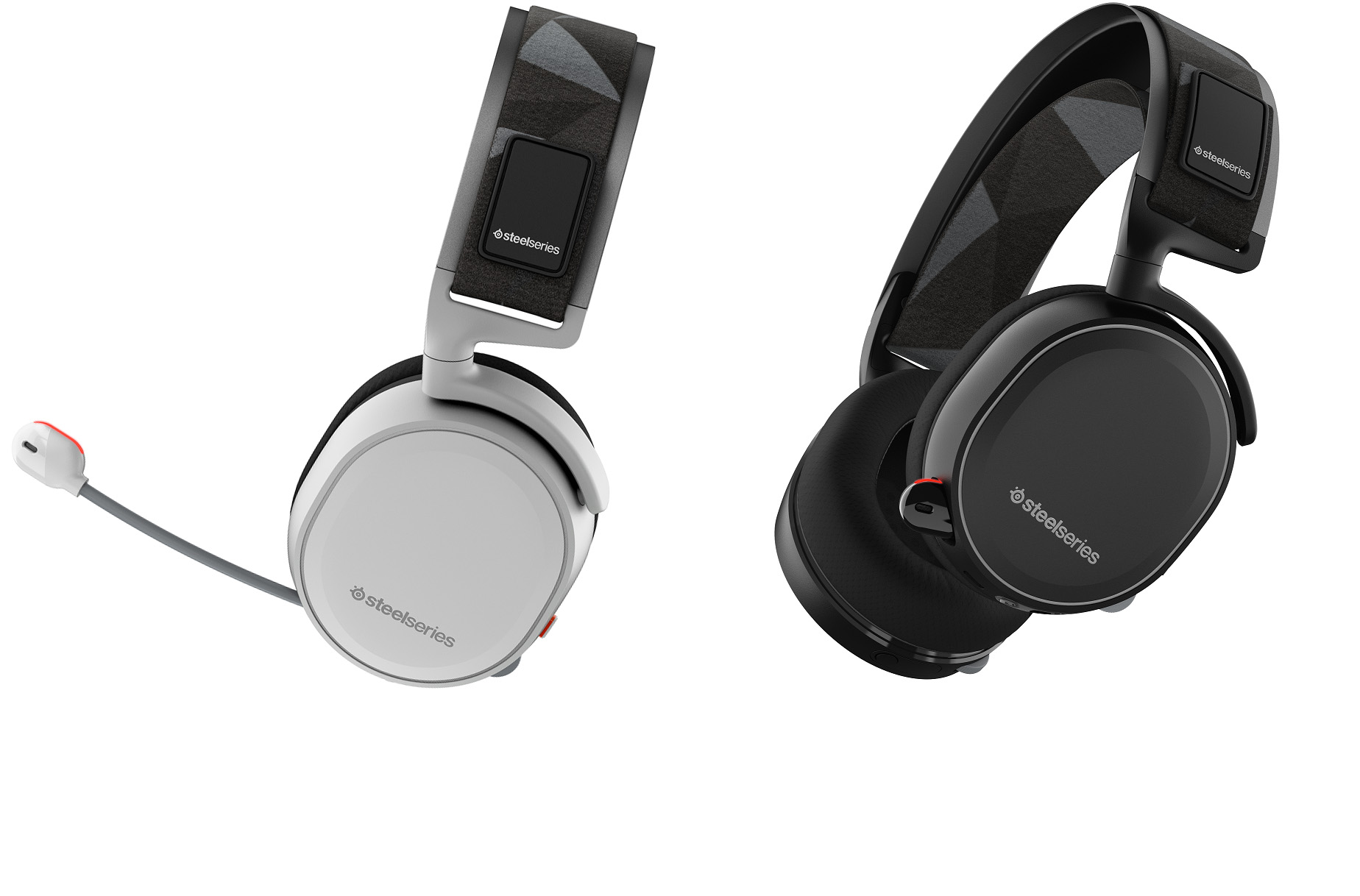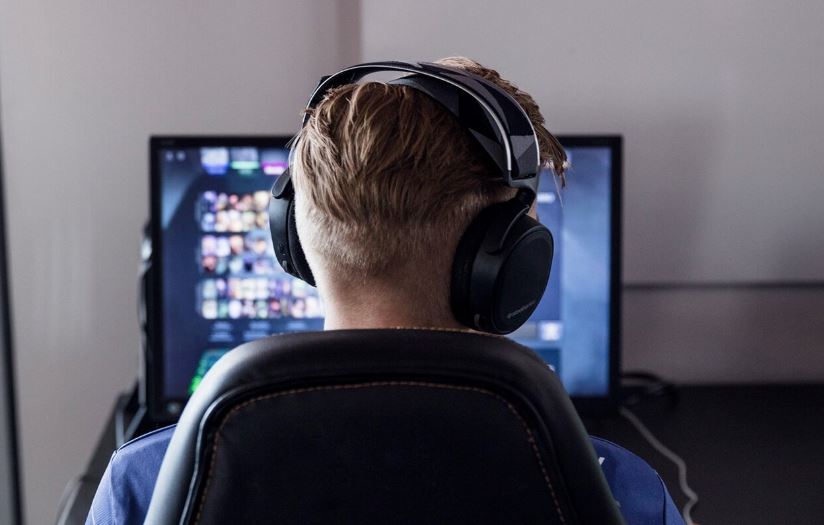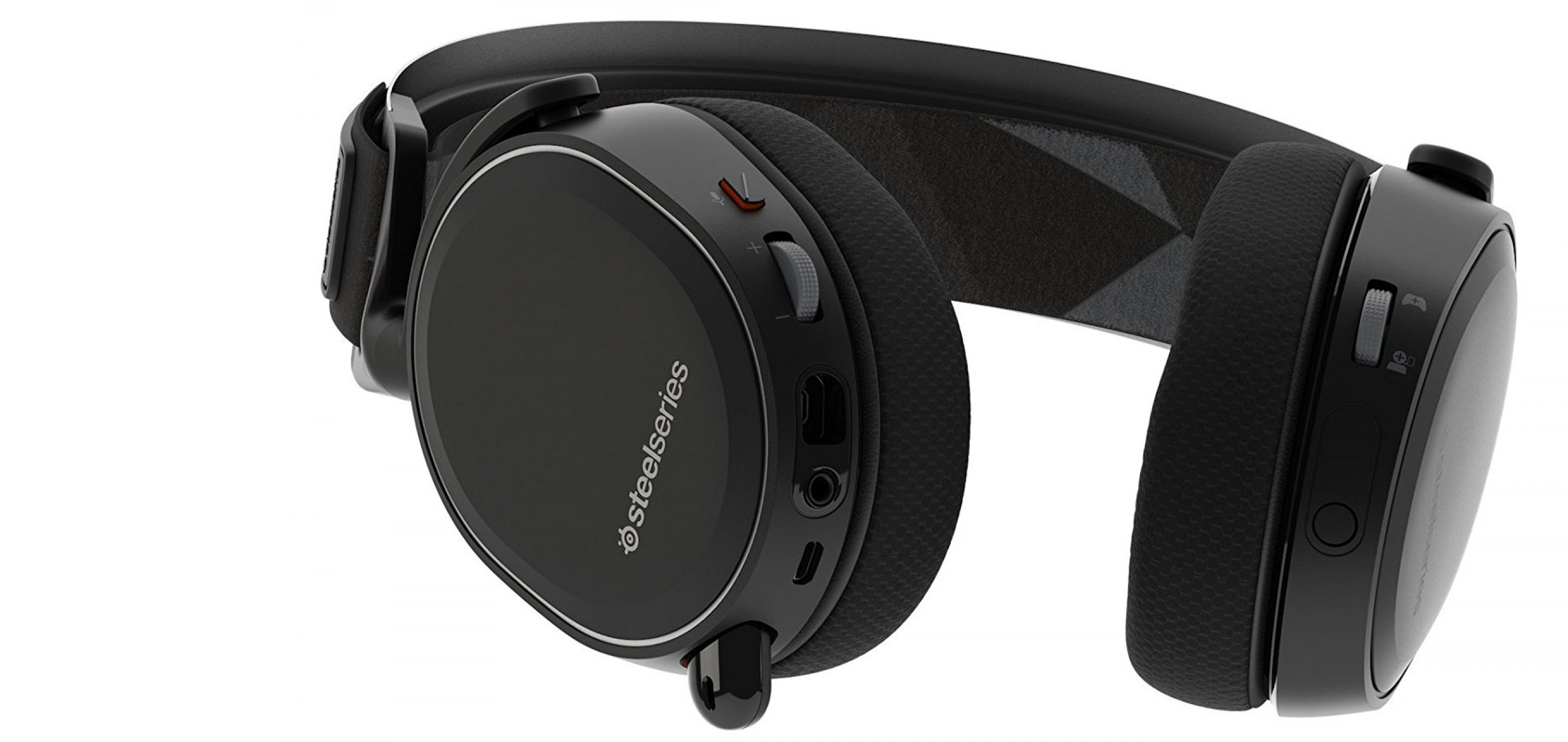Our Verdict
With a remarkably comfortable elastic band and great, balanced sound, the Arctis 7 is the wireless gaming headset to beat.
For
- Headband remains comfortable for hours
- Great battery life
- Better sound quality than most gaming headsets
Against
- Mic quality could be better
PC Gamer's got your back
It usually pays to be wary of self-proclaimed innovations from PC gaming peripheral brands, so we were naturally cautious about a wireless headset with a ski-goggle headband when it first arrived on the scene. It took about five minutes for that caution to dissipate and turn into sheer audiophile love—the purest form of love—as the Arctis 7 revealed its qualities, earning our pick as the best wireless gaming headset.
Drivers: 40mm neodymium
Battery life: Up to 24 hours
Frequency response: 20Hz-20,000Hz
Impedance: 32 Ohm
Features: Retractable noise-cancelling mic, chat mix control, customisable earcup plates and headband
We’ll tackle the ergonomics first, because it’s that headband design that differentiates the Arctis 7 most clearly from its peers on a visual level. The vast majority of gaming headsets, like studio headphones and audiophile kit, are built around an aluminium frame, and to negate the obvious discomfort of having a metal band digging into your skull they’re padded with memory foam and finished with soft, squishy materials like leatherette.
The Arctis 7 walks a different road entirely, using an elasticated fabric band to suspend the aluminium frame clear of your head. It doesn’t sound like it should work. It sounds like the headband would either succumb to the headset’s weight and drop the frame onto your head, or the tension needed to keep it suspended would cut off the circulation to your ears. Neither of those things happens, we’re delighted to report.
Instead you just get great comfort levels, seemingly in perpetuity. Due to the breathable materials at the Arctis 7’s contact points, it never seems to get uncomfortably hot, nor do headaches creep in when you decide that, sure, you’ll play just one more round of Fortnite even though you have to get up for work in 25 minutes. In time (and we’re talking nearly a year of constant daily use) the headband does slacken, and although this affects comfort levels slightly it never gives up so much that you have the aluminium digging into your head. Better still, replacement headbands are available on Steelseries’ online store in a variety of colors, so you can swap out your saggy one if it becomes a problem.

The build quality is great, in general. It’s not adorned with the kind of tribal patterns or RGB lighting strips that until recently seemed mandatory additions on a gaming headset, instead implementing smartly finished matte plastic earcups, soft fabric pads with decent amounts of memory foam within, very smart stitching and well-placed controls at the rear of each earcup.
There’s a volume scroll, a mic mute, the retractable mic itself, and we’re especially fond of having a game/chat mix scroll wheel on the headset itself instead of having to contend with labyrinthine menus in Windows, Discord, and the game itself. There’s a small amount of creaking when you adjust the angle of the headset, but that’s the only blemish on the otherwise exemplary construction standard.
It’s also the kind of wireless headset that you forget is actually wireless, because its battery life is always long enough to power one mammoth session and usually a few days of average use before you need to plug in and charge again. Steelseries has the max charge time at 24 hours, and that’s true to our experiences from new. As with all rechargeable batteries, the life does decrease over time, but after almost a year it’s still hanging on and matching us for pace in longer sessions. As for wireless range, the transmitter can handle up to 12 meters without dropout, and frankly that’s fine for us. We don’t tend to drift further than 12 meters away from the monitor while we’re gaming.

That leaves just one more piece to the puzzle: sound quality. Just as gaming headsets have been moving away from that gaudy ‘gamer’ aesthetic in recent years in favour of a look that mirrors audiophile models more closely, that trend for tweaking the low-end up to absurd levels so that explosions sounded nice when you first tried a headset is receding too. The Arctis 7’s a poster boy for that movement, offering a surprisingly flat response that gives it clarity and versatility, and absolutely no distortion.
These things get loud, too, but even at the highest levels we’ve been brave enough to test them things don’t get muddy. There’s a slightly weird wrinkle on the sound side in that additional software’s required to toggle the virtual 7.1 surround. Steelseries wants you to install its Engine software and register your headset for the privilege, which is a bit of a hassle. Frankly though, I'd always rather play in stereo than virtual surround, so it hasn’t impacted my enjoyment.
As for the mic sound quality—well, it does the job, and doesn’t crackle when you reposition it. Our online buddies sometimes tell us we’re coming through a little quiet when we use the Arctis 7, and positioning the mic closer to our mouth than we’d generally deem appropriate is the only solution.
The Arctis range has made real waves in the headset market since its arrival, and the Arctis 7 still represents the sweet spot between price and performance. Streamers will need a more heavyweight mic solution, for for everyone else who just cares about great sound and ergonomics, this is the first wireless model to check out.
With a remarkably comfortable elastic band and great, balanced sound, the Arctis 7 is the wireless gaming headset to beat.
Phil 'the face' Iwaniuk used to work in magazines. Now he wanders the earth, stopping passers-by to tell them about PC games he remembers from 1998 until their polite smiles turn cold. He also makes ads. Veteran hardware smasher and game botherer of PC Format, Official PlayStation Magazine, PCGamesN, Guardian, Eurogamer, IGN, VG247, and What Gramophone? He won an award once, but he doesn't like to go on about it.
You can get rid of 'the face' bit if you like.
No -Ed.



